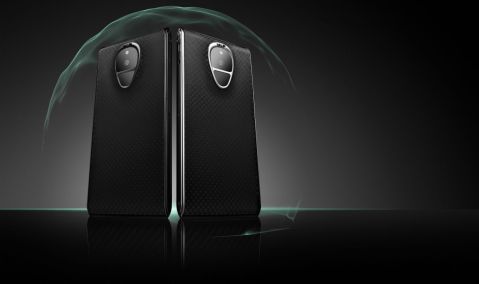Is the world ready for another smartphone? How about one that will cost $14,000 for its most basic model? Today, Sirin Labs — a startup put together by a team of founders out of Israel — used an event in London to unveil the Solarin, a privacy-first device “aimed at the international businessperson who carries a lot of sensitive information but doesn’t want to compromise on usability, quality or design.”
The Solarin smartphone will go on sale June 1 in its own flagship store in London’s Mayfair neighborhood; and in high-end department store Harrods from 30 June, with prices starting at £9,500 (just under $14,000). The price and the chosen retail locations underscore that Sirin is not targeting your average, common businessperson, but a much smaller group of super-rich, for whom, presumably, $14,000 doesn’t seem like too much money to spend on a smartphone.
Indeed, Sirin is banking on the belief that for these buyers, security and related privacy features, as well as a slick design, will be much more of a priority than the price tag. (Or at least, when worrying about much larger sums of money, $14,000 might feel like a wise investment.)
The Solarin will be loaded with features from third-party companies such as mobile security, anti-cyberattack software from Zimperium; and KoolSpan chip-to-chip 256-bit AES encryption, “the same technology that militaries around the world use to protect their communications.” The phone will come with a physical security switch on its back for extra encryption, the company says.
Other specs speak to global travellers: they include Qualcomm Snapdragon 810 processor with X10 LTE and Wi-Fi; up to 450 Mbps downlink and up to 150 Mbps uplink speeds; support for 24 bands LTE compatibility; support for 802.11ac 2×2 MU-MIMO (multi user multiple input, multiple output) technology; and WiGig (802.11ad) multi-gigabit Wi-Fi technology. It will also include a 23.8-megapixel camera; and a 5.5” IPS LED 2k resolution screen.
Sirin Labs says it has been working on the device for two years already — in R&D operations in Lund, Sweden and Tel Aviv — but it was only about a month ago, in April, that the company revealed that it had raised $72 million in a “seed” round from Moshe Hogeg, Kazakh businessman Kenges Rakishev, and the Chinese social networking service Renren to fund the operations.
The backers are regular investment partners: they all have backed Singulariteam, a VC fund managed by Hogeg; and Rakishev and Hogeg have also backed another fund called Genesis Angels as well as photo app Mobli. You get the impression that Sirin Labs’ backers see themselves as potential customers: collectively these previous investments represent hundreds of millions in finance. The individuals say none of these projects are connected as such, and Sirin is yet another independent operation.
There is something interesting about a company that is willing to throw everything at a new phone to see just how good good can be, but there are also some reservations I have with all this.
First, the company is operating on a seed round for now, and creating hardware — especially at this level — is a very costly exercise. Hogeg, who is president of Sirin Labs as well as co-founder and backer — says they are committed to this project, but it’s unclear just how far they will be willing to continue financing Sirin Labs and/or the Solarin for years to come.
Second, there are many claims being made about just what you are getting with this device. Hogeg says that these have been verified by the NCC Group, but those who are buying for privacy may want more checks.
And third, I have other questions not directly related to the Solarin itself. How will Sirin make sure that these extremely private and secure devices aren’t used by criminals or others for illegal means? And will they care if they are? Should we care?
Interestingly, the company seems to have attempted to cut off some potential misuse early. Hogeg said that the phone will only be sold to people who are identified with their passports, and there is a list of countries that the phone won’t be sold to. We are still waiting for that list to be provided.
